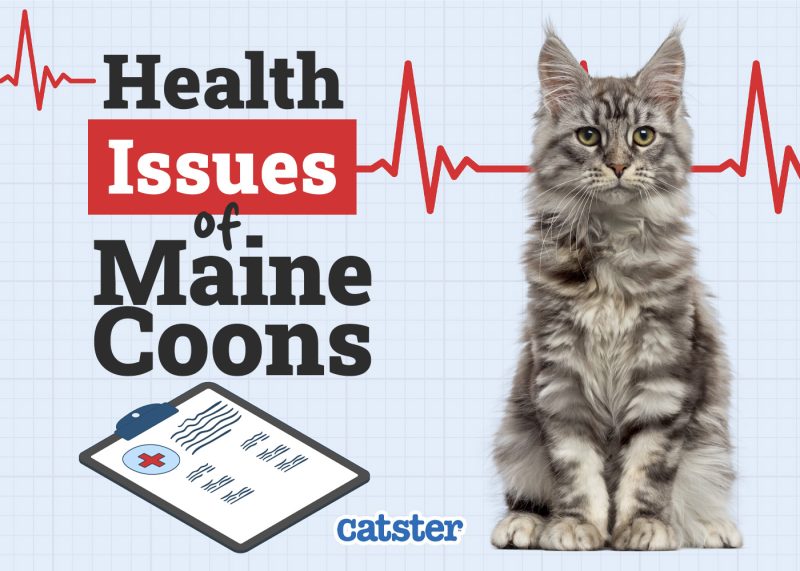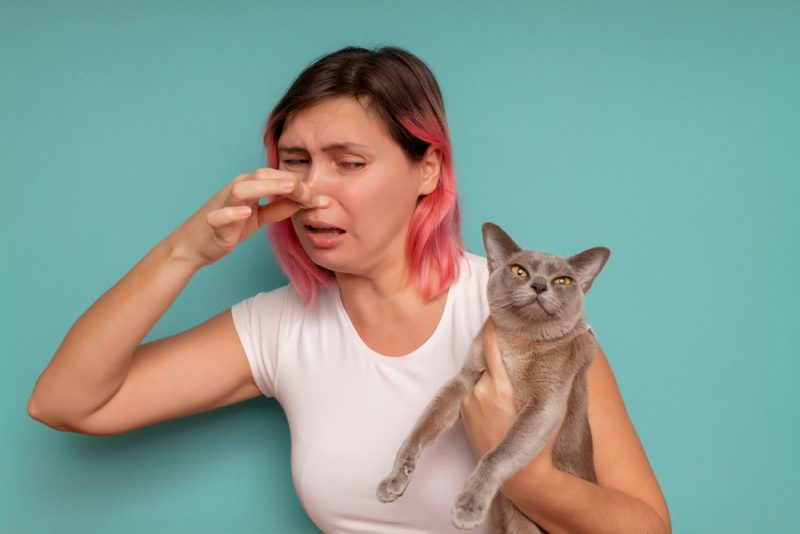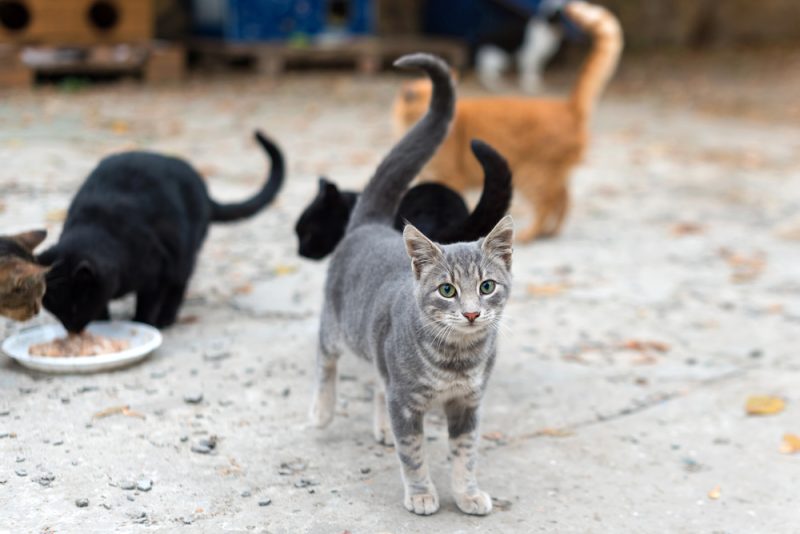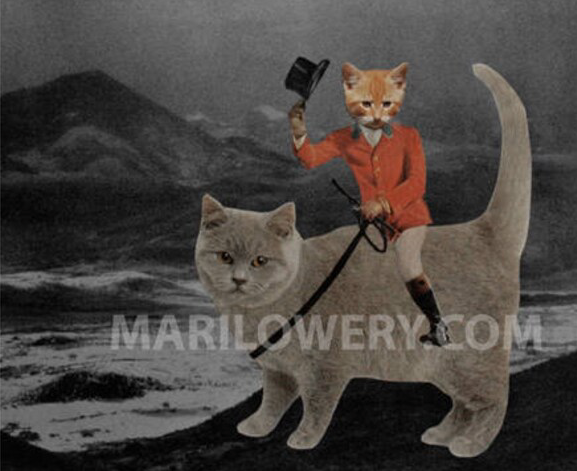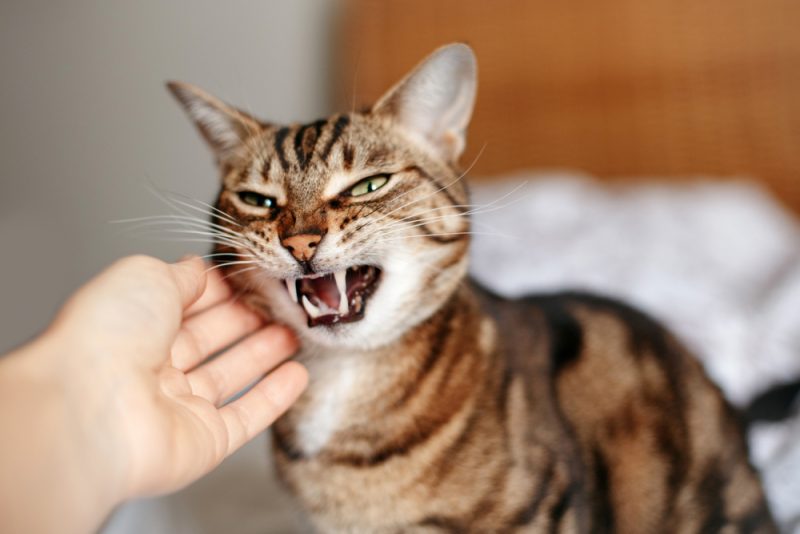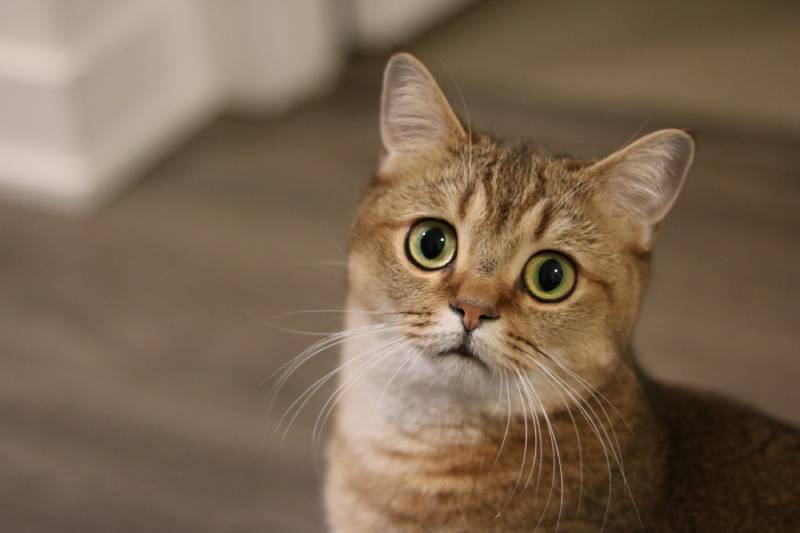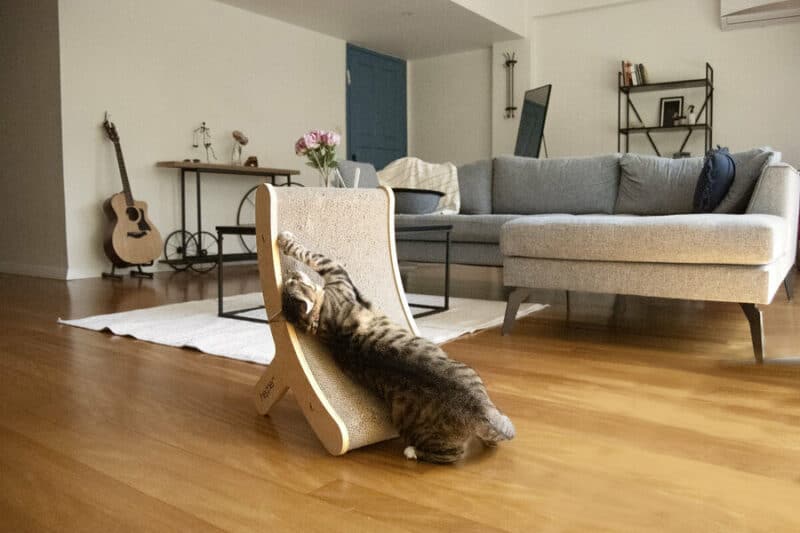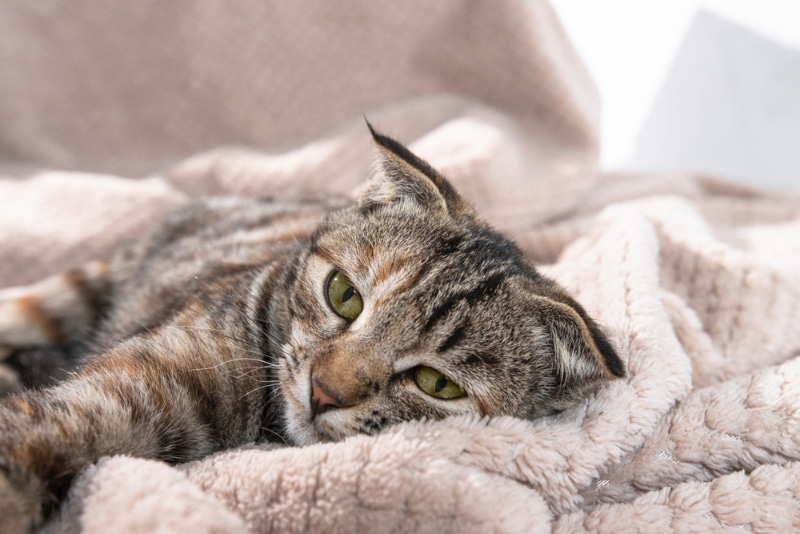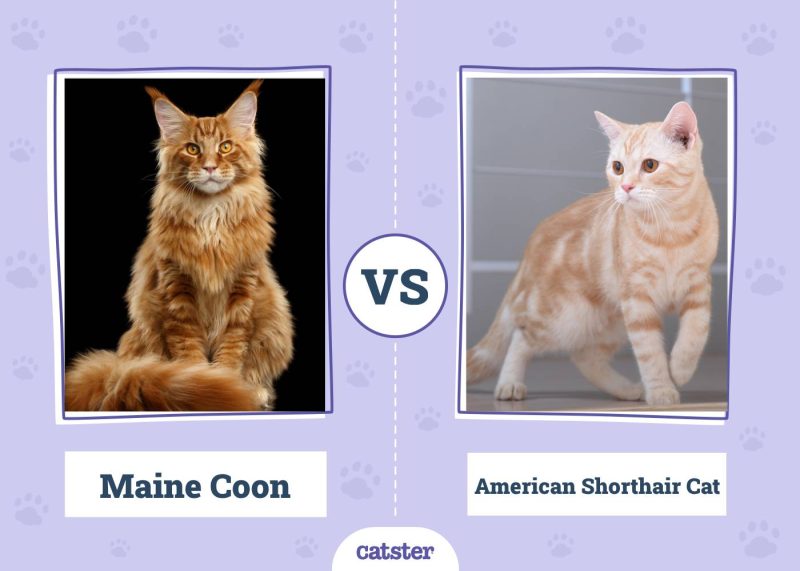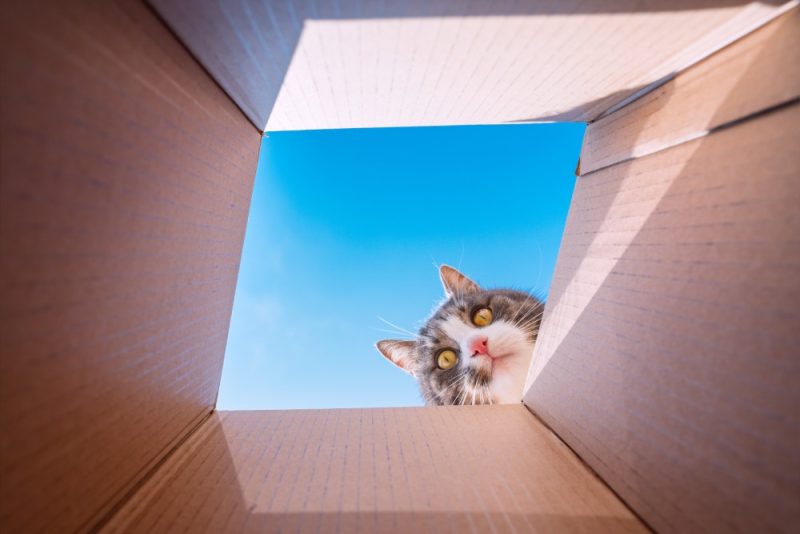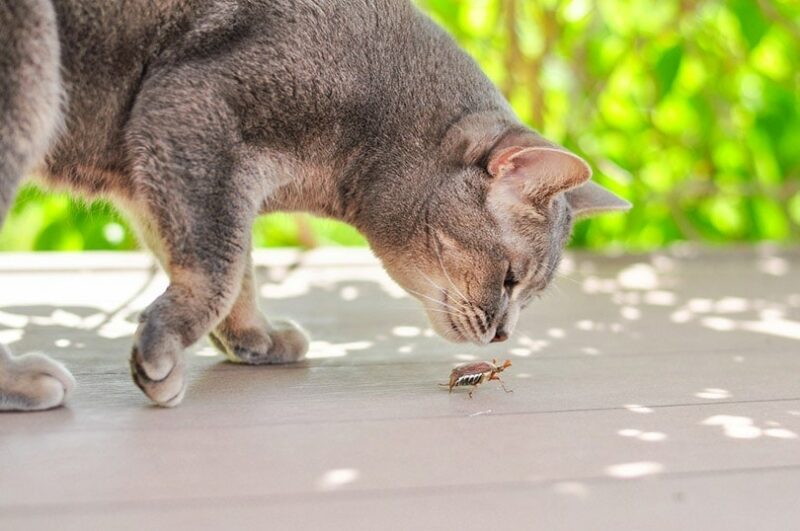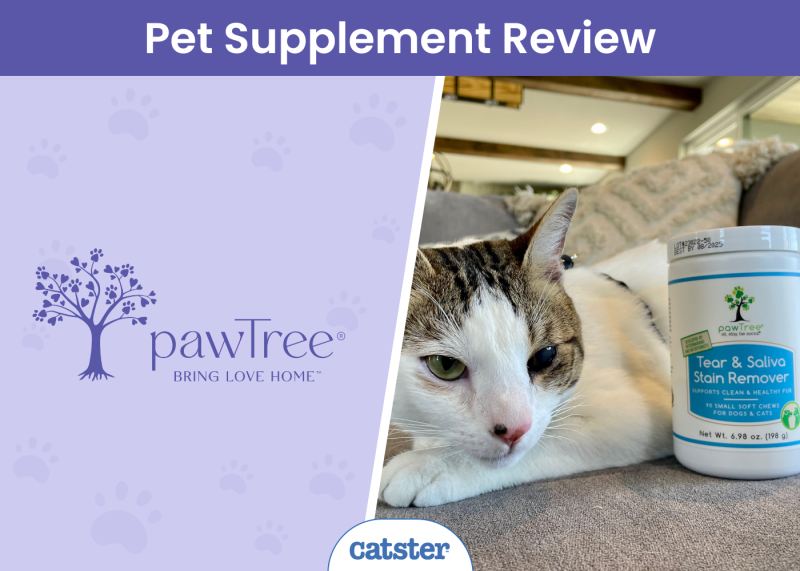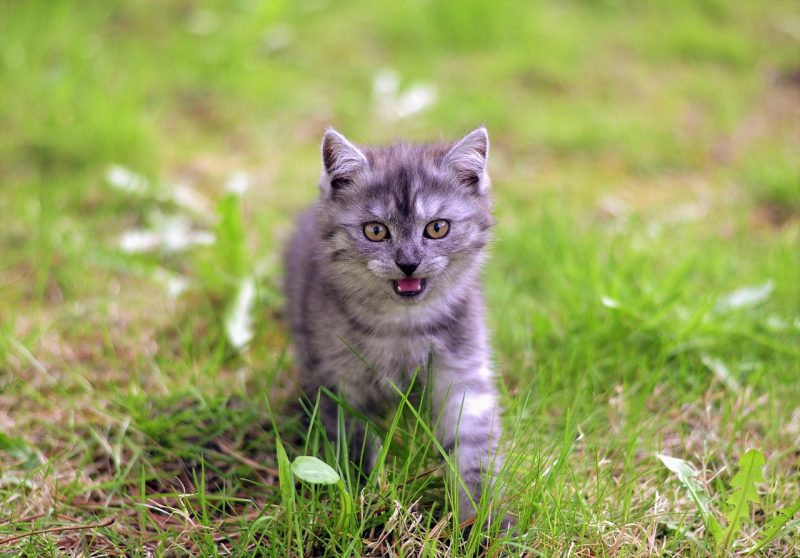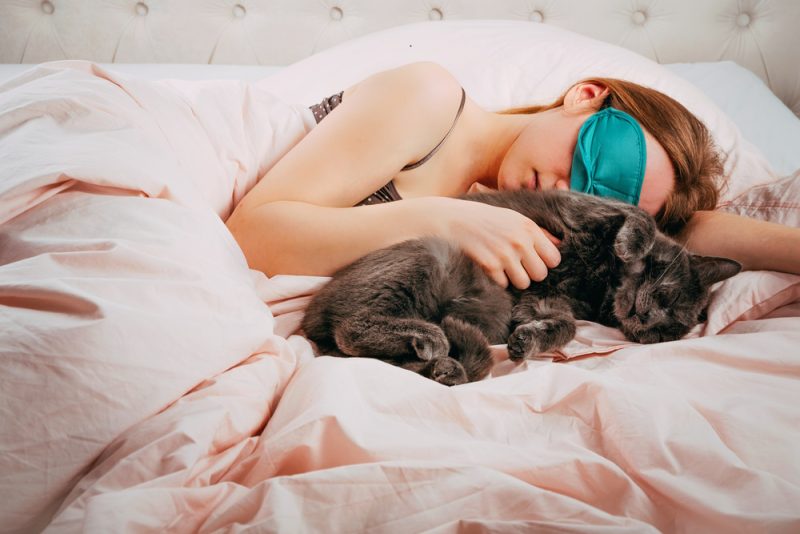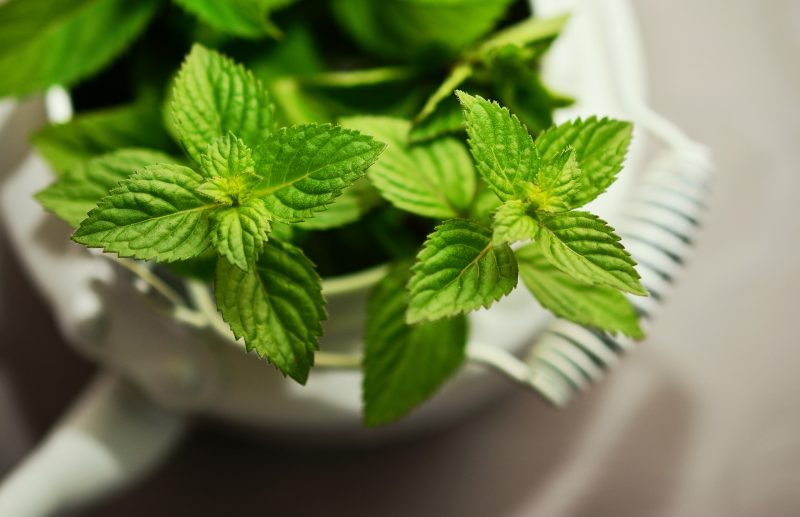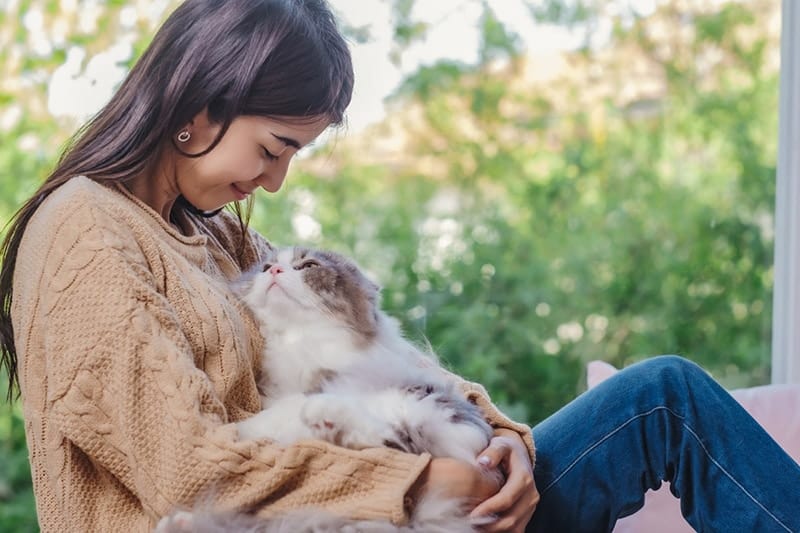Maine Coons are beloved felines, and it’s easy to see why. They have gorgeous, full coats and are large, majestic animals that are impossible to ignore. Many cat lovers find this breed to be affectionate and fun to have in the home, and they make great pets overall.
Luckily, they are generally sturdy and healthy cats, but this doesn’t mean they don’t have any potential health concerns. There are certain conditions that Maine Coon cats are genetically predisposed to develop.
Knowing about the potential health risks will help you care for your beloved cat and keep them safe.

The 8 Common Main Coon Health Problems
While you’ll want to keep any cat healthy through regular veterinary visits, healthy diet, and exercise habits, there are eight health concerns these cats are more likely to develop. The conditions include hypertrophic cardiomyopathy, spinal muscular atrophy, hip dysplasia, stomatitis, renal failure, obesity, polycystic kidney disease, and patellar luxation.
Keep reading to learn more about these problems and symptoms to look out for to protect your Maine Coon.
1. Hypertrophic Cardiomyopathy
This is a heart muscle disease that is mainly inherited. With hypertrophic cardiomyopathy, the heart muscle thickens. It’s generally difficult to spot signs of this illness early on, as cats, in general, will hide that they’re feeling sick. You should watch out for fast breathing, lack of appetite, and lethargy. When these outward symptoms show, it’s vital to seek veterinary help right away.
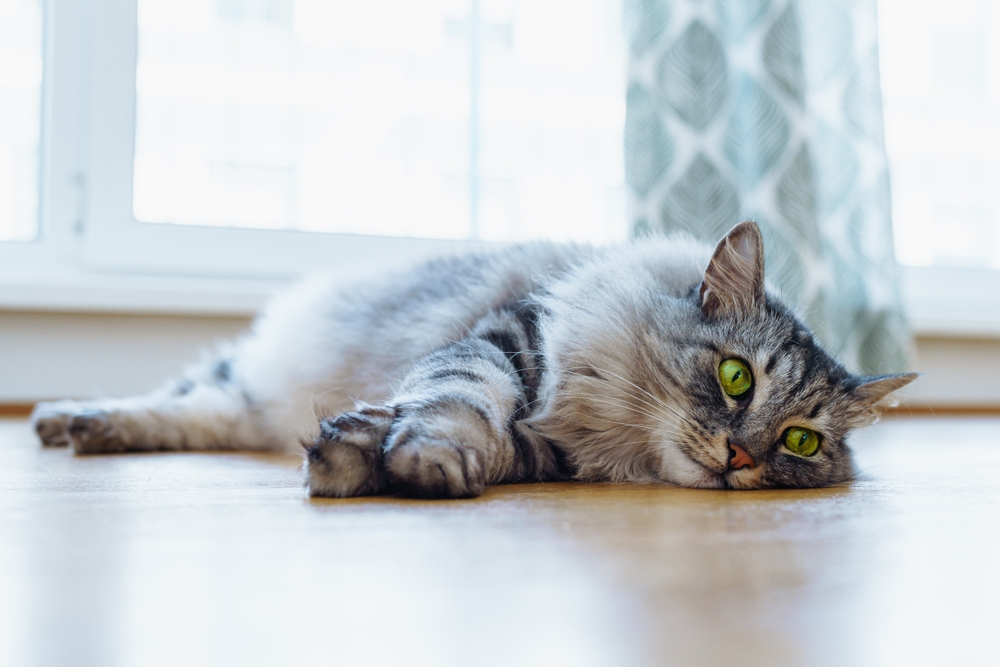
2. Spinal Muscular Atrophy
Spinal muscular atrophy is another condition that affects Maine Coon cats. The disease disrupts the posture of the cat over time as motor neurons are lost. This neuron loss impacts the lower spinal cord and causes atrophy in the hind legs. Luckily, this condition isn’t fatal, and many cats with it live long and happy lives. Signs start to show around 3-4 months of age.
This illness is a recessive trait, and tests are available. So, if you’re considering breeding Maine Coons, you’ll want to get this testing done to make sure the disease isn’t passed down.
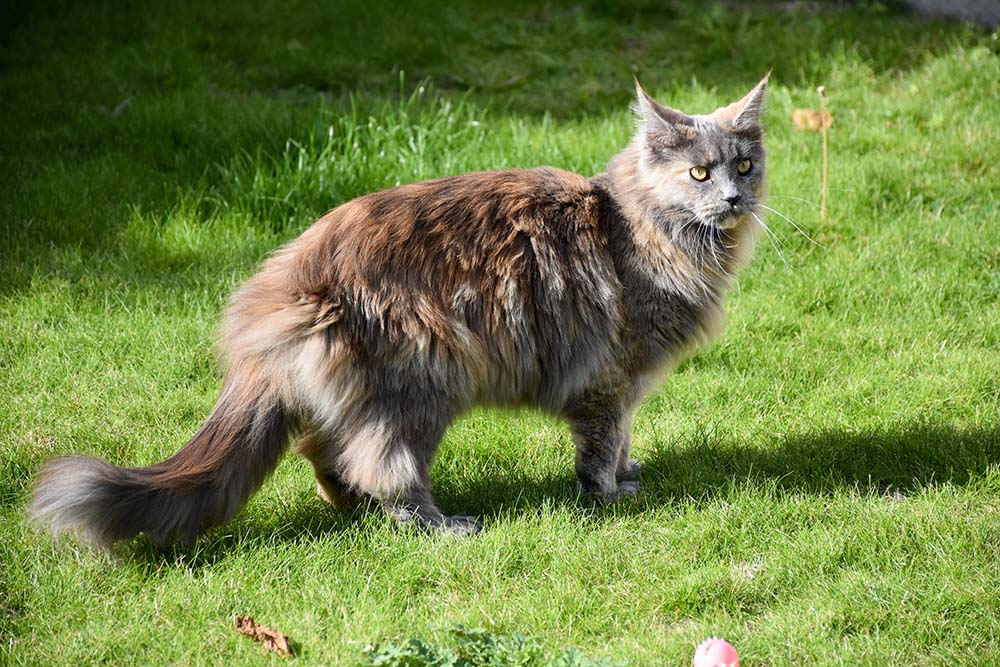
3. Hip Dysplasia
This condition is more common in dogs but shows up in some cats. Maine Coons are particularly prone to this condition. Over time, the malformed hip joints from hip dysplasia cause arthritis.
It’s difficult to spot hip dysplasia initially, as Maine Coons won’t show many signs when they’re young. But, if your Maine Coon starts showing signs of early aging or lack of movement in its hips, it’s best to make a vet visit. X-rays are necessary to diagnose this problem.
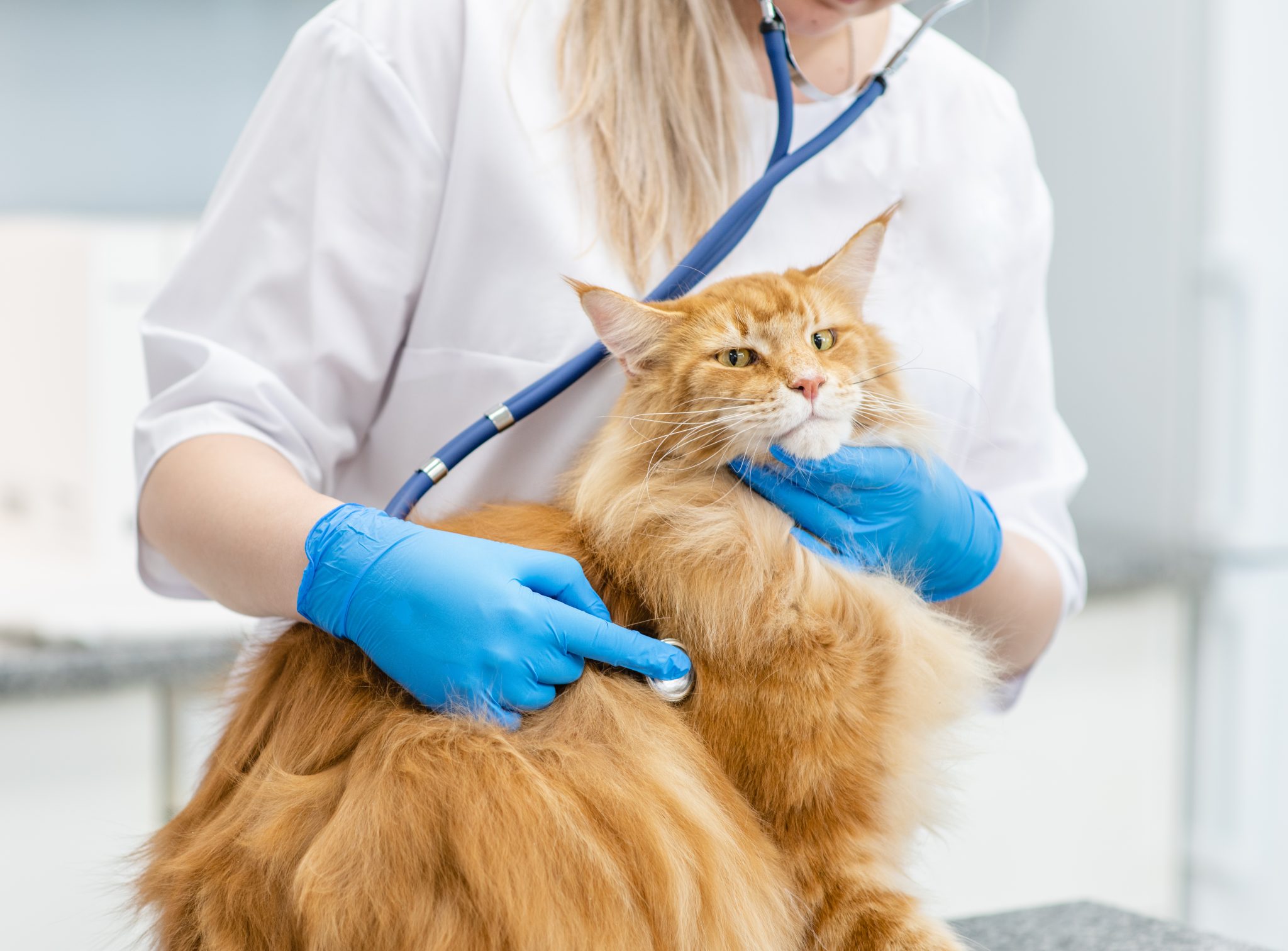
4. Stomatitis
Stomatitis is a dental disease that affects several breeds, but Maine Coons are more likely to have this problem. Stomatitis develops from gingivitis (gum disease) if it’s not addressed. The condition impacts the soft tissues of the cat’s mouth because an immune response to plaque and bacteria creates constant inflammation.The swelling can be painful and cause lesions.
The best way to prevent stomatitis is to keep your cat’s mouth clean. Watch for signs such as weight loss, loss of appetite, and stinky breath. Talk to a vet about dental health habits for your Maine Coon cat.
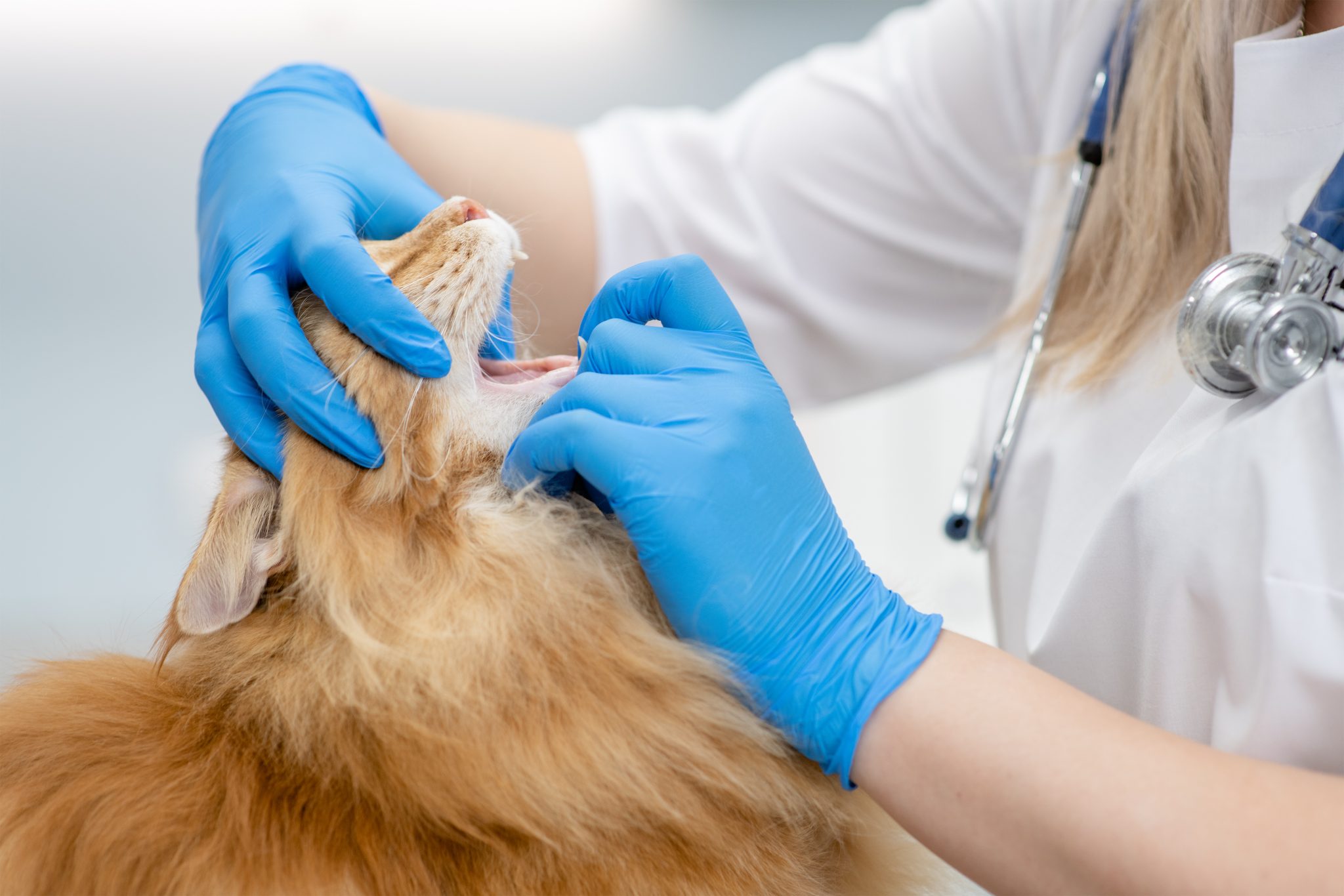
5. Renal Failure
When the kidneys can’t function properly, renal failure can occur. The kidneys clean waste in the blood and control hydration, so kidney issues are a major concern. Renal failure is more common in older cats, but young cats can be genetically predisposed to the disease.
Maine Coons have also been documented to develop kidney cysts that do not share the gene for PKD that is seen in Persian cats and related breeds.
Even kittens can have kidney problems, and signs can appear quickly. The easiest way to protect your Maine Coon is to screen for the genes involved.
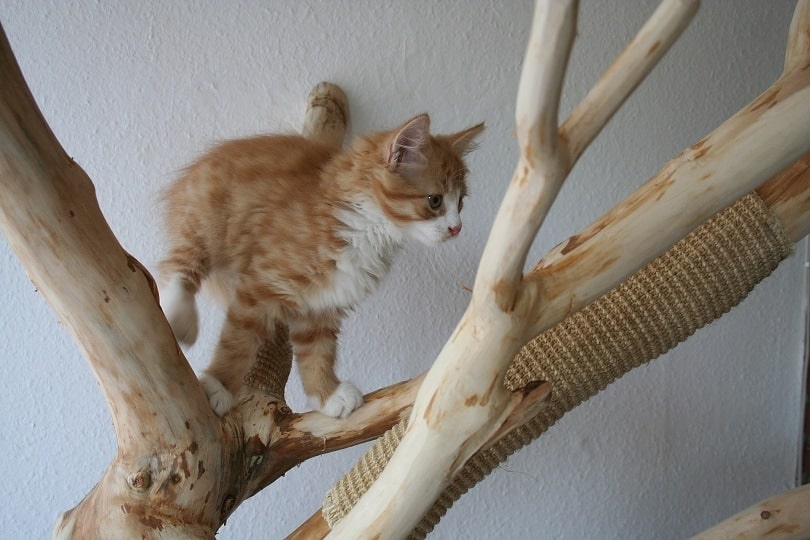
6. Obesity
Weight problems impact many cats. Given that Maine Coons are a large breed, it’s not surprising to learn that they are susceptible to weight issues. The signs of obesity in Maine Coons are more evident than the signs of some other illnesses, but it can be challenging to spot the line between a healthy and unhealthy weight. It’s wise to work with a veterinarian to determine the healthy weight and diet for your beloved Maine Coon. Exercise is also vital to weight management.
Remember, overweight cats can develop many specific health issues such as diabetes and fatty liver.
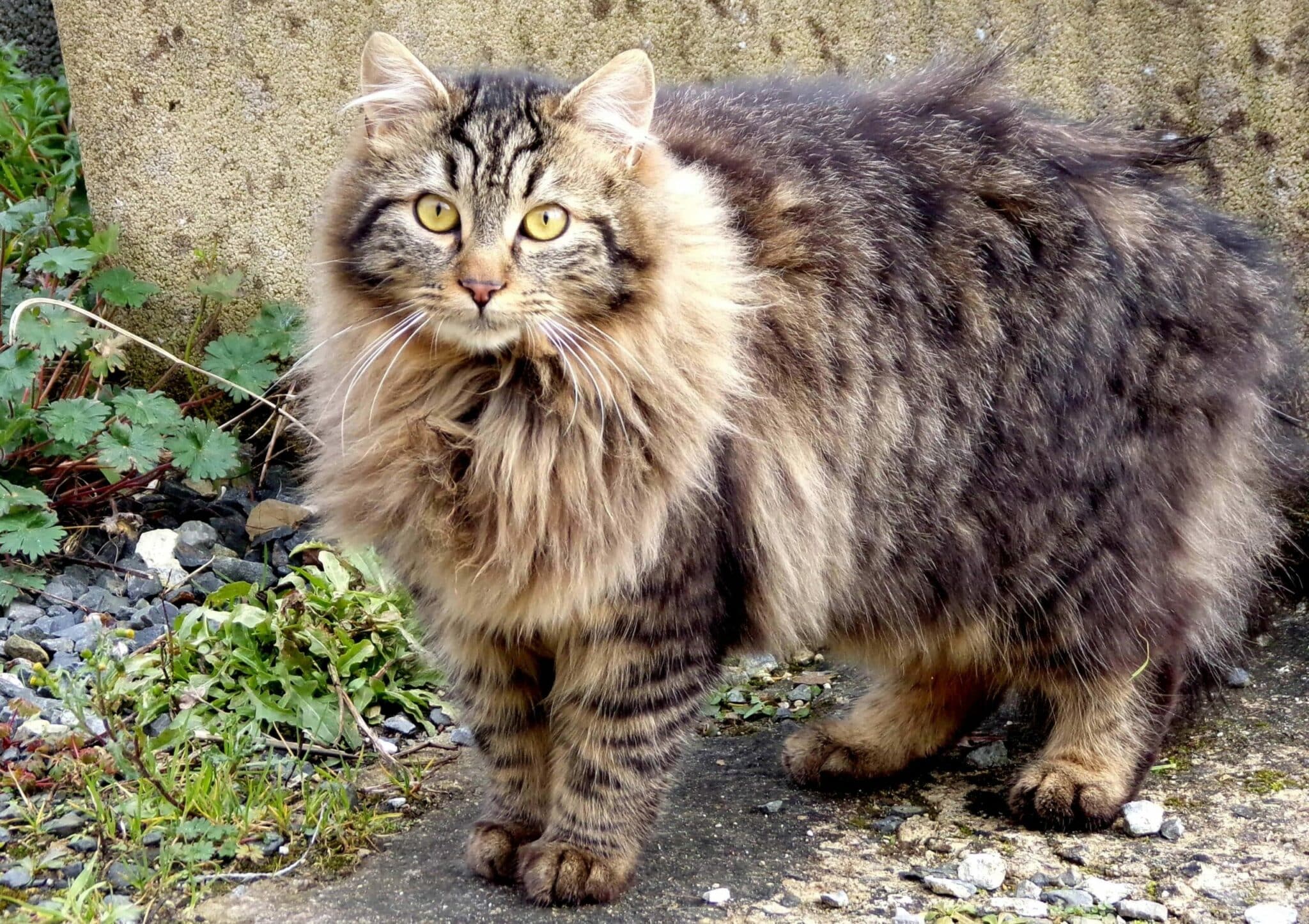
7. Patellar Luxation
Cats have a flexible knee joint that allows them to perform feats humans never could. Also known as the kneecap, the patella can slip to the side. This displacement is known as patellar luxation. Simply put, this is kneecap dislocation. Unfortunately, your Main Coon may not display signs of the condition at first, but you can look for indications like limping and trouble jumping or a skipping gait. A vet examination is necessary to detect patellar luxation.
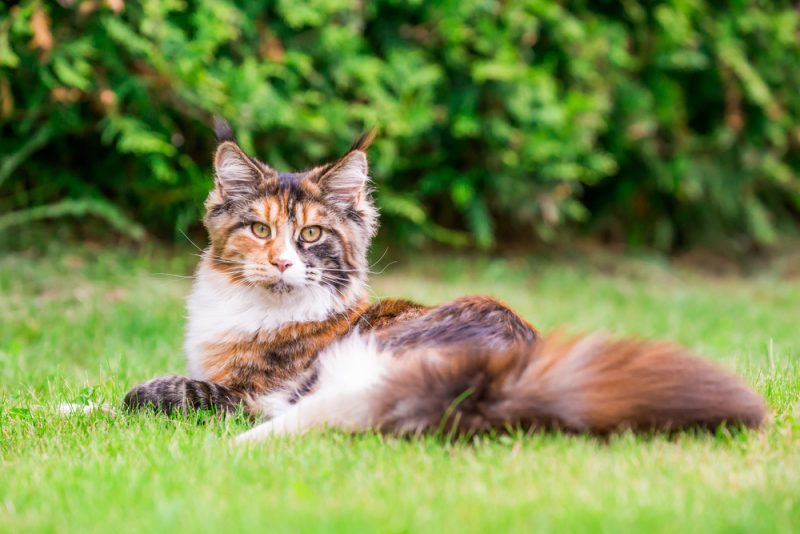
8. Polycystic Kidney Disease
In this genetic illness cats develop multiple cysts in the kidneys. Over time, these cysts increase in size and damage the kidneys, and result in kidney failure. Main Coon are a low risk of PKD compared to Persians and related breeds.
Remember to have regular vet visits when owning a Maine Coon to keep their health and well-being. If you’re concerned about your cat’s health we suggest you speak to a vet.
If you need to speak with a vet but can't get to one, head over to PangoVet. It's an online service where you can talk to a vet online and get the advice you need for your pet — all at an affordable price!


Conclusion
While some breeds are likely to have a long list of health issues, Maine Coons are generally healthy. They are sturdy and hardy, and most individuals won’t have significant health problems. However, all Main Coon cats should receive veterinary care regularly. You love your cat, so preventive care is key to keeping them safe and healthy.
Featured Image Credit by: Olga Korvinuss, Shutterstock
